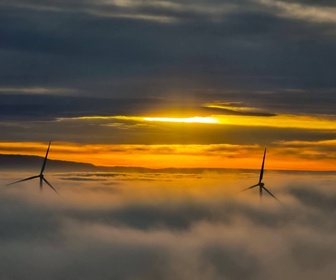DNV has completed a series of reports for the State of Maine’s Governor’s Energy Office for the Maine Offshore Wind Initiative. The initiative was launched in June 2019 to outline a clear roadmap to develop floating offshore wind in the Gulf of Maine, while ensuring balance with Maine’s maritime industries and environment.
The State of Maine has abundant coastline and some of the highest average wind speeds in the United States, which makes offshore wind an ideal resource to decarbonize its energy supply. However, project development is more complex than other areas already under development on the east coast, because of the Gulf of Maine’s water depths and status as a primary economic driver for the state.
In 2020, the U.S. Economic Development Administration (EDA) awarded a $2.166 million grant to the State of Maine’s Governor’s Energy Office to advance the offshore wind industry in Maine through the development of a comprehensive industry roadmap.
DNV’s analysis revealed that the benefits of the offshore wind industry to the state are substantial: potential wage earnings of US$2B, the creation of up to 33,000 jobs in the short term during the construction phase of the projects, and up to 13,000 long term jobs during the operational phase of the projects, a potential savings of US$930M in the annual avoided social cost of carbon, and a potential savings of US$4.5M in annual avoided health costs by 2050. Additionally, the electric power generated from offshore wind will be able meet the state’s needs for decarbonized energy when the projects come on-line; however, no large-scale wind farms will be operational in the near term. In the majority of DNV’s scenarios, offshore wind capacity in the Gulf of Maine will accelerate after 2040.
While the development of offshore wind in the State of Maine demonstrates a potential for clear benefits, stakeholders are concerned about negative consequences to the industries and communities that rely on the ocean. The fishing industry, the tourism industry, coastal and non-coastal communities, and the environment could all be impacted in ways that are not currently feasible to estimate, as the lease areas have not yet been finalized by the Bureau of Ocean Energy Management (BOEM).









